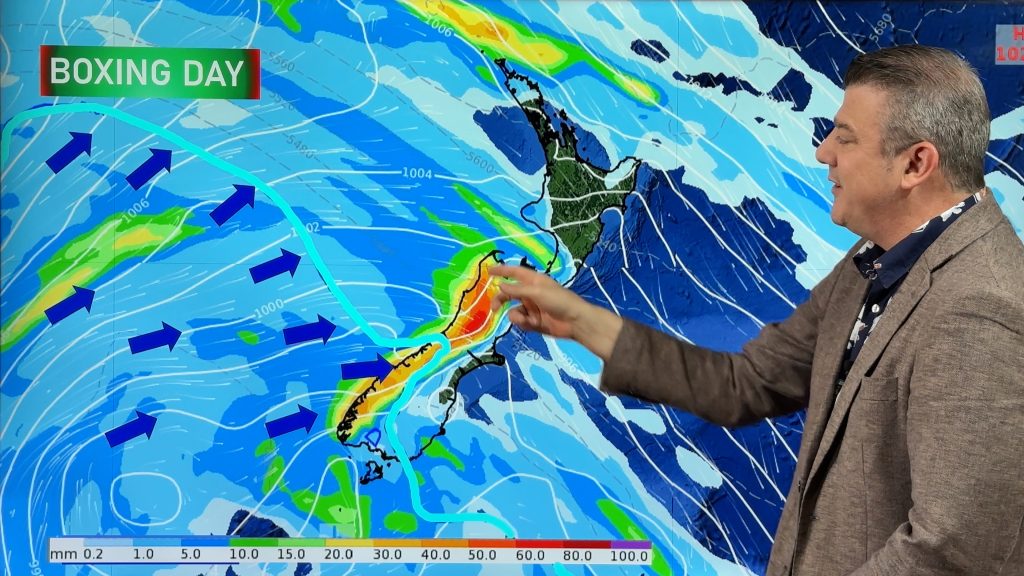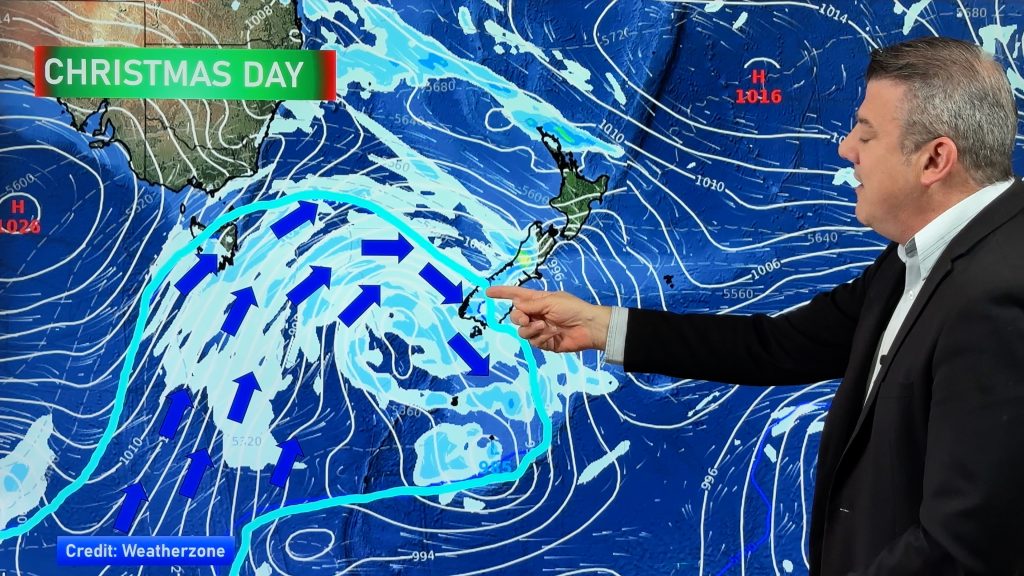
> From the WeatherWatch archives
It was a “once-in-50-year storm”, it was “the most snow in a generation”, it was the “strongest wind for years”. Was it perhaps also “the most overblown weather language in a lifetime”?
Days before the first snowflake hit the country last week, there were already reports of the magnitude of the coming storm – and the hyperbole began falling as heavy and long as the forecast rain.
 WeatherWatch.co.nz head weather analyst Philip Duncan admitted the language of weather was a curious thing, and the public could be bombarded with grandiose descriptions of weather that in reality was not significantly worse than it had been in previous years.
WeatherWatch.co.nz head weather analyst Philip Duncan admitted the language of weather was a curious thing, and the public could be bombarded with grandiose descriptions of weather that in reality was not significantly worse than it had been in previous years.
For instance, he said, last week’s storm was similar to that which hit in August 2011.
When there were reports of a “once in 100-year flood” happening in consecutive years, he did some digging to find out how that could be the case.
“It’s a statistical calculation – it’s one of those funny things,” Duncan said.
Often when the power of a storm was stated, meteorologists would use the statistical likelihood of it repeating rather than measuring it against other weather events over the years.
MetService spokeswoman Jacqui Bridges said they would only make comparisons with the past when the storm had gone, and even then it was difficult to make sweeping statements.
Last week, some people compared Wellington’s wild weather to that at the time of the Wahine disaster 45 years ago, but while waves were a similar height, the winds were not as strong.
Bridges said most of the “worst storm since . . .” quotes came from residents in affected areas, relying on their memories rather than scientific equipment.
Duncan, who set up WeatherWatch in 2005, said “emotive language slipped out” in the early days [of the company].
Bridges said the key was to get the correct information to people without embellishments.
“It’s important we don’t cry wolf,” she said.
Duncan agreed it was important to focus on language and erring on the side of conservatism was always safest.
– image / File, Zelda Wynn
– Story written by Fairfax Media
Comments
Before you add a new comment, take note this story was published on 22 Jun 2013.




Add new comment
Greg on 23/06/2013 12:38am
While you’re on the subject of sweeping statements how about this comment from you guys yesterday:
‘By the time the southerly had injected itself into the low a few days later (mid-week) it was exploding into a storm that dwarfed most – if not all – storms on earth at the time’
I would’ve thought the storm which was hitting Canada at the time causing 75,000 people to be evacuated during massive flooding in Calgary would’ve at least matched the nz storm in size, not to mention the monsoon in India?
I think you guys do a great job but I don’t think you’re entirely innocent of over-dramatisation at times!
Reply
WW Forecast Team on 23/06/2013 12:50am
You’re getting confused with the energy/size of a storm and the number of people being impacted. The above statement was factually based on size/energy – on Friday this entire system was bigger than all of Australia in size. It reflects why Wellington had winds that were stronger than most people can recall and why snow of up to 2 metres fell through parts of the South Island. In comparison, if a storm this big and this powerful hit India the death toll could be significant. That isn’t to underplay what’s happening in India and Canada either, but you’re comparing apples with oranges when you use them as an example of highlighting us dramatising. Understand what you’re saying though, but note that also that comment was made after the event – we didn’t say that in the build up and during the peak.
WW
Reply
steven on 23/06/2013 12:30am
What i will say is that the forecast was ammended as soon as it was realised snow at sea level was unlikely so we got the correct forecast 24 hours in advance. Also despite there being no snow i was grateful i had prepared not to go out thursday friday as the weather was still terrible. I dont think people really have grounds for complaint.
Reply
WW Forecast Team on 23/06/2013 12:53am
Hi Steven, yes the forecast said all week that snow was "borderline" for Chch and Dunedin. Was just 2 degrees with rain on Friday night in Chch – a degree or so colder and it would’ve gone from flooding to a major snow event – incredible! We think the warnings from MetService and forecasts from WeatherWatch were both on the mark this week for the most part. We don’t often say that either! Thanks for the comment and feedback.
Cheers
Reply
Guest on 22/06/2013 11:40pm
Those who were affected by the huge dumps of snow, and storm damages, Im sure where very grateful to know to expect such a strong weather, from the reports, but, those of us who escaped damage, snow etc, probably do feel a bit.. peeved to have heard such strong reports… I think, in this day and politically correct age, the poor old weather men, along with many others, are damned if they do, and damned if they dont.. and naturally, have to err on side of caution.. reality is for some, common sense is not as common as it once was, and people have to be reminded to get extra food etc in.. just in case. Some of the ways they explained what was about to happen, were very good, loved the dry sense of humour about the freight train (re wellington weather) …without a driver was it… smiles.. very good.
Reply
Guest on 23/06/2013 6:40am
weather ‘men’?
Reply
Zelda Wynn on 22/06/2013 11:36pm
Great to hear the emotive language may stop 🙂
Reply
WW Forecast Team on 22/06/2013 11:40pm
Think you missed the point there Zelda – both WW and MetService were fairly conservative with comments last week, but that didn’t stop the big news stories. These other quotes came from outside sources – whether that’s other forecasters or, as MetService accurately point out, from locals. So a local opinion/comment in the immediate aftermath of being hit (emotive) then becomes a headline with some mainstream news outlets. Totally out of our control – although if it’s our quote being misused we will contact the media outlet and tell them directly. In other words – we can’t stop others from using emotive language, it’s why we encourage people who are confused to stick to just our site and the latest MetService warnings.
Cheers
Philip Duncan
Reply